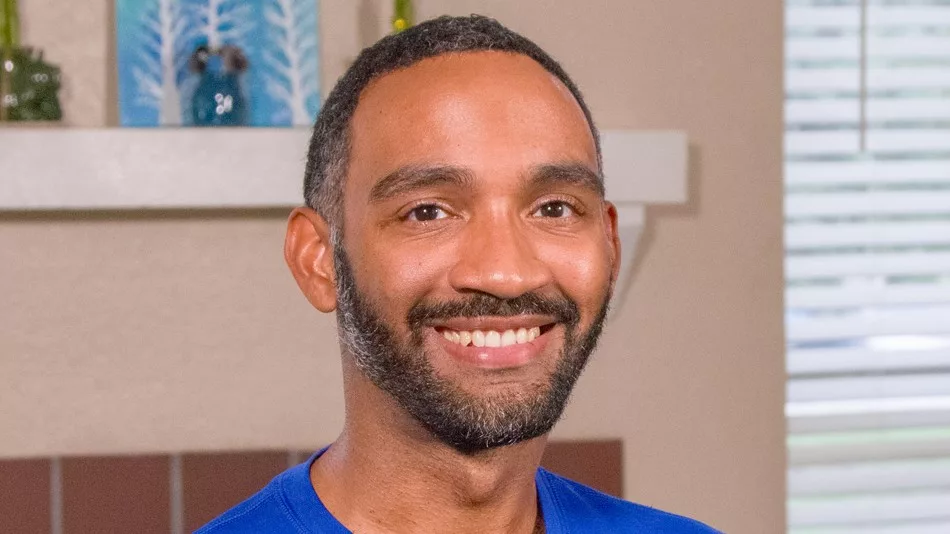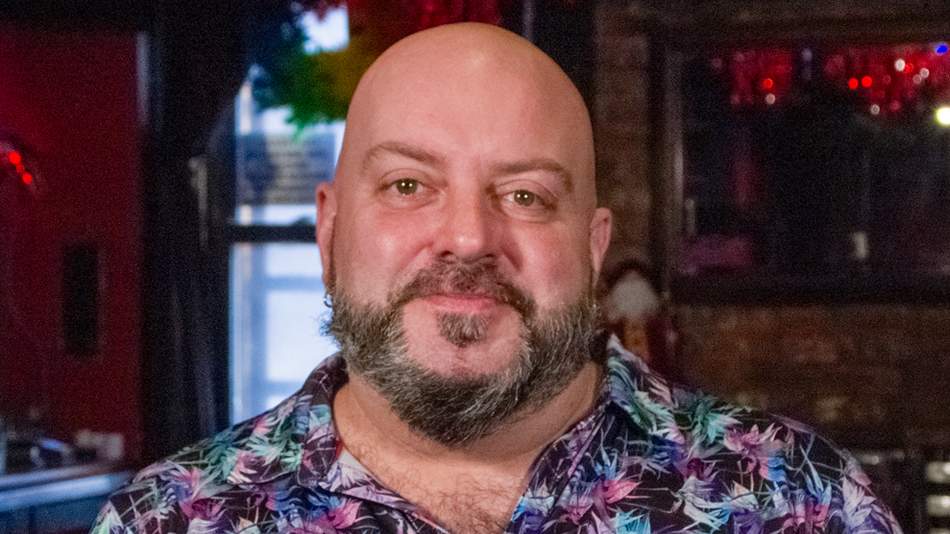My name is Ari Gold and I am from the Bronx.
When I was a child, I was obsessed with Annie. I had an Annie doll. I must’ve somehow convinced my parents to get me an Annie doll. But when it came time to get the Annie dollhouse, there was a lot of pushback and my dad said in the toy store, you know, “What does a little boy need with an Annie doll?” And he got very upset. So that was, I guess, a real shaming moment and realizing that boys were not supposed to play with dolls and do the things that girls did.
I have two straight older brothers and one of them was always very proud to say that our family was the only normal family that he knew. But he also walked around all the time saying that being gay was not normal, so there was some disjuncture there. And then, of course, like, when I got to high school, you know, I tried to test the waters with my rabbis. And I think one of the most tolerant rabbis I had gave me a whole essay deconstructing the Torah and stuff and the ultimate message was that, okay, being gay is not a sin, but doing gay acts – the action is a sin.
All along the way, I was getting all these messages from my older brothers, from my parents, that it was not okay to be gay. At school, I was getting messages from the rabbis or the teachers that it is not okay to be gay. But I loved my family and I loved Judaism and I even, you know, I wrote a whole essay saying how the Torah has all the answers to life. So it was very difficult for me to reconcile these different things.
So I’ve been singing my whole life and I had my first demo when I was 12 years old and I started writing songs I was 14. I think I couldn’t have become a real artist until I learned to accept myself and be truthful and honest with the people in my life that I love. Once I got a out of yeshiva, Jewish parochial school, and was in college and started meeting different kinds of people with different perspectives, I think I got the confidence to come out to my family. So I basically wrote them an 18-page college ruled handwritten coming out letter that I read to them out loud. I sat them down and held an unprecedented family meeting. There were additional reading materials stapled to the back.
On about page 3 was when I said the words “I am gay” and as soon as I said that, my brother, Elon, started crying. And that made me want to cry, but I knew that if I allowed myself to cry in that moment, I wouldn’t have been able to stop and I would have lost the ability to finish the letter and it was so important for me to show them that I was okay. I composed myself and I finished reading the letter and I addressed my brother, Elon, who had said that our family was the only normal family he knew but being gay was not normal. So I told my brother, Elon, either our family is normal and being gay is normal or our family is not normal because one of the family members is gay. So I held him accountable for those words.
At the end of the – of the letter, the last line was something like “I may be a sissy, a queer, a faggot, a fag, a fagela, but I’m still Ari, the same Ari that loves you all very deeply.” And at that moment, we all started crying and my dad chose to say something very beautiful and he said, “The only reason why we’re crying is because of the pain we caused you.” We still had to struggle for a few years after that, but I am so grateful that the one moment that I took to read them that letter and to come out to them, that that was a positive experience for all of us.
From there I really was able to explore my song writing from a much deeper, more truthful place. One of the first songs I wrote, it’s called “Write Me a Love Song” and I had “he” and “him” male pronouns in it and I got recognition from Billboard magazine and it was pretty awesome.
I’ve been through a lot with my family and we continue to grow and to change and evolve and to deal with the, you know, the fact that most parents especially from religious communities do not grow up with the idea that their children are going to be gay. So we continue to work things out, but at the same time I’m very lucky because my parents, my mom will be, like, front row at my show, you know, hands up in the air screaming louder than anyone else. So, you know, that’s really cool.
When I look back on how I was a child versus how I am now, the truth is that I don’t necessarily see it as these two separate things. You know, I still carry that child with me every day and I think that the shame and that stuff is still something I work with every single day, but back then I didn’t have any other experience. I only knew that. And so today, I have other experiences to tell me that I will get through this and I can get through this and I can practice things that help me love myself, say things to myself, you know, reach out to other people who love me and accept me. Back then I didn’t have – I wasn’t able to do that. So in some ways things haven’t changed, but I just have better tools and I am now grown, so I can take care of that child in a better way than I was able to do back then.








Share